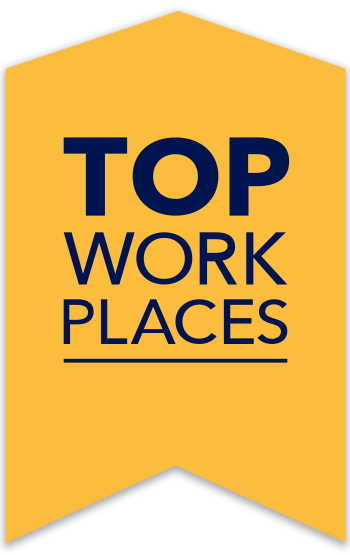Now more than ever, healthcare professionals are in high demand — and it’s predicted that the industry will continue to grow, with more jobs being added by 2030 than any other sector. Healthcare offers advancement opportunities and stability, even for people without experience. The benefits of working in healthcare include meaningful growth opportunities and career stability.
Jobs in the medical field are available for people with all levels of education and experience. To find a job you’ll love, research the various opportunities available at your experience level and follow these tips for how to get a job in healthcare. These ideas are beneficial if you are trying to figure out how to get into the medical field with no experience at all.
Best entry-level healthcare jobs (no experience needed)
Wondering how to get a job in the medical field without any experience? There’s good news. Most healthcare organizations offer entry-level positions with on-the-job training. It’s one of the most significant benefits of starting a career in the healthcare industry because you can gain valuable experience while getting paid. Some entry-level positions require specialized certificates from a trade school, technical school, or workshop, but many jobs do not require experience or a degree:
- Home health aides help people with disabilities live their day-to-day lives. Annual salary estimate: $23,000
- Medical scribes assist during the examination and treatment of patients. Annual salary estimate: $35,000
- Medical secretaries schedule patient appointments, maintain records, and coordinate medical tests. Annual salary estimate: $42,000
- Receptionists handle administrative tasks for a medical office or hospital. Annual salary estimate: $37,000
- Orderlies help patients with their daily activities and support aftercare. Annual salary estimate: $32,000
- Pharmacy technicians assist registered pharmacists with supporting activities, including filling prescriptions. Annual salary estimate: $34,000
- Psychiatric aides care for patients with mental illnesses, acting under the direction of nursing and medical staff. Annual salary estimate: $32,000
- Patient service representatives are the liaison between patients and hospital staff. Annual salary estimate: $34,000
- Security officers protect patients, visitors, and medical staff. Annual salary estimate: $30,000
- Hospital interpreters do not require medical experience but must be fluent in multiple languages. Annual salary estimate: $48,000
These roles likely require certification, but not a degree:
- Emergency medical technicians respond to emergencies, stabilize patients, and transport them to medical facilities. Annual salary estimate: $37,000
- Patient care technicians help medical staff with basic procedures. Annual salary estimate: $33,000
- Occupational therapy aides help patients regain mobility after illness or injury. Annual salary estimate: $30,000
- Massage therapists help patients relieve and manage pain with their massage techniques. Annual salary estimate: $40,000
- Certified nursing assistants help nurses with essential duties, including taking vital signs and prepping equipment. Annual salary estimate: $32,000
The most helpful tips to get a job in healthcare with no experience include: graduating from high school, writing a resume highlighting soft skills, growing your professional network, finding positions offering on-the-job training, and researching what continued learning opportunities align best with your career interests.
Best associate’s degree jobs in healthcare
There are plenty of opportunities for those with an associate’s degree. Continued education is a promising sign to hiring teams, so highlight your degree on your resume, in communications, and during the interview. Some healthcare jobs that require an associate’s degree include:
- Licensed Practical Nurses perform basic nursing tasks in medical facilities like clinics, hospitals, and nursing homes. Annual salary estimate: $43,000
- Physical therapy assistants help patients recover from injuries or illnesses, working under the direction of physical therapists. Annual salary estimate: $45,000
- Occupational therapy assistants help patients develop the skills needed for daily life after injury or illness, working under the direction of an occupational therapist. Annual salary estimate: $57,000
- Medical assistants record and maintain patient health and personal information. Annual salary estimate: $34,000
- Phlebotomists work with blood samples and require a certificate and an associate degree. Annual salary estimate: $34,000
- Surgical technologists help doctors and nurses in surgical environments. Annual salary estimate: $47,000
- Dental hygienists work in dental offices and help support the functions of a dentist. Annual salary estimate: $70,000
- Radiology technicians prepare patients for x-rays by examining their medical charts and needs. Annual salary estimate: $60,000
- Respiratory therapists help patients with breathing or cardiopulmonary problems. Annual salary estimate: $60,000
- Ultrasound technicians work alongside doctors in obstetric and gynecologist clinics. Annual salary estimate: $74,000
- MRI technologists operate scanners at hospitals and diagnostic facilities. Annual salary estimate: $72,000
Best bachelor’s degree jobs in healthcare
A bachelor’s degree, especially one that is healthcare-related, will provide more opportunities to break into the medical field at an even higher level. People with bachelor’s degrees are more likely to find a job than those with an associate degree or no experience.
Here are some of the healthcare jobs for people with a bachelor’s degree:
- Medical and health services managers lead organization, communication, and analysis in hospital, outpatient, and home health care settings. Annual salary estimate: $93,000
- Biomedical engineers combine medical sciences with biology to create the devices and equipment used to treat patients. Annual salary estimate: $87,000
- Nutritionists can find work in hospitals, residential centers, and outpatient clinics, supporting patient nutrition. Annual salary estimate: $60,000
- Health information specialists handle medical data through healthcare IT systems. Annual salary estimate: $42,000
- Lifecare planners help people cope with life-threatening injuries, chronic problems, psychiatric and neurological issues, and other long-term disabilities. Salary estimate: $150 an hour
- Veterinary technicians assist veterinarians by operating essential duties, including treating minor injuries and taking animals’ vital signs. Annual salary estimate: $31,000
- Perfusionists operate blood conservation machines to ensure patients’ blood circulation is stable during surgery. Annual salary estimate: $107,000
- Clinical research scientists study samples and conduct tests to improve the diagnosis and treatment processes, research infectious diseases, and communicate with other specialists. Annual salary estimate: $123,000
10 tips to get a job in healthcare
Understanding what to look for in a job, how to put your best foot forward, and the qualities of a great workplace will increase your chances of finding the right fit. Keep reading to learn more helpful tips for how to get a job in the healthcare industry.
1. Graduate high school & keep learning
The first tip for how to get into the medical field with no experience is graduating high school and continuing to learn as much as possible. Even though most entry-level healthcare jobs don’t require specialized certifications or degrees, a high school diploma or GED is often a minimum requirement.
Find self-education and professional development opportunities whenever possible to see continued career growth, especially if you do not have a degree. Most entry-level healthcare jobs will provide on-the-job training where you can develop skills to advance your career. Taking advantage of these opportunities whenever possible will help you gain experience and put you ahead of the competition.
2. Volunteer or get vocational or technical training to gain experience
Gaining volunteer, vocational, or technical experience will give you the certifications necessary to stand out among other applicants. These roles usually include training that will boost your resume:
- Certified nursing assistants
- Patient care technicians
- Pharmacy technicians
- Phlebotomists
- Home health aides
- Medical transcriptionists
- Orderlies
Additional training or volunteering experience benefits include hands-on experience, finding a job faster, a higher salary, and improved career clarity. Finding a job that offers training or professional development programs is a great way to catapult your career.
3. Write a strong resume
A strong resume is key to finding a job in healthcare. No matter your experience level, it is the perfect way to introduce yourself and show that you’re the ideal fit for a job.
A few basic resume rules include:
- Be concise
- Present the most vital information first
- Design an easy-to-read format
- Include personal or career interests
- Create tailored versions for different roles
Be resourceful with your current experience and highlight all the unique skills that make you the most qualified for the role.
4. Network
Meeting people within the industry will help you get a job, especially if you’re wondering how to get a job in healthcare with no experience. Networking includes:
- Joining professional groups.
- Attending public lectures.
- Asking someone to shadow them for a day.
- Reaching out to acquaintances who might have connections.
Networking teaches you how to talk with colleagues, ask for help or job recommendations, and what’s happening in the industry. The more networking you do, the more comfortable you will be in an interview and office setting.
5. Start with a broad job search
The unlimited number of open medical jobs can be overwhelming when you start your search. Start with a broad list of job titles and role requirements to find the perfect job. Sometimes, the job you assumed would make you the happiest, or the position closest to your network might not be where you end up.
6. Don’t ignore entry-level positions
Entry-level positions advance your future career growth by providing relevant work experience that will qualify you for future roles. Thinking of any job, including an entry-level one, as a fantastic opportunity to learn will help you absorb more information and grow faster.
7. Consider relocating
Relocating to a different area might help if you are stuck trying to figure out how to get a job in healthcare and aren’t having luck in your area. Other locations offer unique specialties and diverse opportunities, so be sure to check out all the options and find excitement in the possibility of relocating.
8. Use job boards and set up alerts
Joining job boards and setting up alerts are two other ways to find a job in healthcare. Registering on different hospital and medical group sites and general healthcare job boards will help you explore more options and keep you engaged in the job search process.
9. Ask for feedback from hiring managers and recruiters
Ask hiring managers for feedback on your communication skills, cover letter, interview skills, and resume. Their experience can provide you with valuable guidance and explain how to get into the medical field with no experience.
It’s the perfect opportunity to have another conversation, but this time about how you could best position yourself in the future for a similar role. Knowing how to do better will improve your chances of getting the next job.
10. Choose a career and company you’ll love
The final and maybe most important tip is to follow your intuition and choose a company that aligns with your passions. Finding a job you love is crucial, and by knowing the warning signs of a bad company, you avoid feeling drained, unmotivated, or unfulfilled.
People in the medical field commonly experience burnout from working long hours. Still, you can avoid that by being able to recognize toxic workplace traits like lack of innovation, micromanagement, or confusing job expectations. You can prevent these problems by checking out the best healthcare companies based on honest employee feedback.
Look to Top Workplaces to Find a Healthcare Career You’ll Love
The Top Workplaces Healthcare Industry award highlights companies creating a desirable work culture, empowering employees, leading their industry with innovation, and forging the movement towards more transparent business practices.
Top Workplaces makes it easier to find healthcare career opportunities at organizations focused on having positive, people-focused work culture. It’s the perfect place to learn about industry leaders and find a job where your well-being is in your company’s best interest.
Read more: Best Healthcare Companies to Work For
If your company is in the healthcare industry and you’re proud of your people-first culture, get recognized for it! Nominate your organization for Top Workplaces, the employer recognition program that offers awards in 60+ regional markets and national awards for culture and industry excellence.

